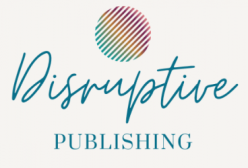
When someone is thinking about writing a non-fiction book – a memoir, a self-help or a business book – it never even occurs to them that their book might be about anyone other than themselves.
They are the author, after all. Who else would it be about?
If they are writing a memoir, then it is about their life story, or a portion of it, and that makes the book entirely about them.
If they are writing a self-help or a business book, then naturally it is about them, because it is their experience and their expertise they will be writing about.
They will be writing their book in an attempt to show their ideal customers and clients that they know their business and that they know what they are talking about. They need to be seen as an expert in their field, and as someone who can be trusted to advise and help the reader. That is the very reason for writing the book for many.
But…in a twist of irony, it turns out that one of the most important things an author needs to know about writing a book about himself is…
…It’s not about you!!
Today I want to talk about who your book is about and why. And then I’m going to give you some tips on how to write about yourself without making it about you.
So who is your book about if it’s not about you?
That’s an easy question to answer. It’s about your reader. And it’s always about your reader. Even when you are writing a book about yourself, you need to be writing it to fill a need for your reader.
Why?
Because if it’s not about your reader then no one will want to read it.
How is it possible to make my book about my reader when I am sharing my story and my knowledge?
I’m so glad you asked. Let me show you how to do that successfully.
Assuming you know your story, or your business, then knowing the answser to the following 7 questions that will help you write a book about you without making it about you:
1. Who needs to read your book?
2. What do they want to know?
3. What do they need to know?
4. What can you give them that will help them?
5. What makes you the expert?
6. What can you reader do to help themselves?
7. What can they do to access your help?
Something I have talked about and written about it extensively is the importance of identifying your ideal reader. Who needs to know what you know? Who is going to benefit most from your experience or your expertise? Why might they be looking for you? What problems are they seeking solutions for?
More often than not, your reader will be seeking a specific outcome, and what they want might be quite different to what they actually need, but until they think you can give them what they want, they won’t care what you think they need.
It is important to identify what the outcome is that they are seeking and what is going on in their lives that is causing them to seek solutions in the first place. You can literally write to them as you would if you were writing a letter, explaining to them what you know about them and their pain.
Doing this first will let your reader know that you understand them and they will start to open up to anything else you might have to say. It’s about making your reader feel safe.
Once you’ve answered the first two questions adequately and made your reader feel safe enough to keep reading, you’ll be able to start talking about what you understand about their circumstances, why you think they might be experiencing what they are experiencing, and what you think they actually need.
Now is the right time to let them know now what your book is all about and how they might benefit from reading it all the way to the end.
If you’ve managed to keep your reader until now, you can start talking about you and your experience, but remember to keep your reader in mind as you do this. Share your story about how you came to be an expert in a way that addresses the reasons your reader picked your book up in the first place. Don’t waffle. Stick to sharing only the parts of your story that will matter to your reader and will help them make sense of the content that is to come.
Follow this up by giving them some tips and tricks that they can easily put into place for themselves. This will help them to move forward and build their trust in you.
And finally, let them know exactly how to connect with you and work with you should they want further assistance. Make this really clear and easy to follow.
If your reader has stayed with you until the end of the book this part – this call to action – will be important. There is nothing worse than finding a good author and wanting to stay connected or even work with them only to have no clear way of doing that.
That’s it from me for today. I hope this helps you to be more intentional with your writing.
If you would like to know how to join us in the Authorpreneur’s Bootcamp where we teach authors how to write, publish and promote their books for themselves go to www.disruptivepublishing.com.au/jointheclub.
It’s the perfect time to join us if you want to write and publish your book in 2023. You’ll be able to get familiar with the learning platform and then hit the ground running as we enter the New Year.
And we’d love to have you join us.
If you’d like to talk about publishing with Disruptive Publishing go to www.calendly.com/disruptivepublishing/freeinfosession and we can chat about your options.
Authorpreneur’s Bootcamp
Have a great week everyone.
Bye for now.
